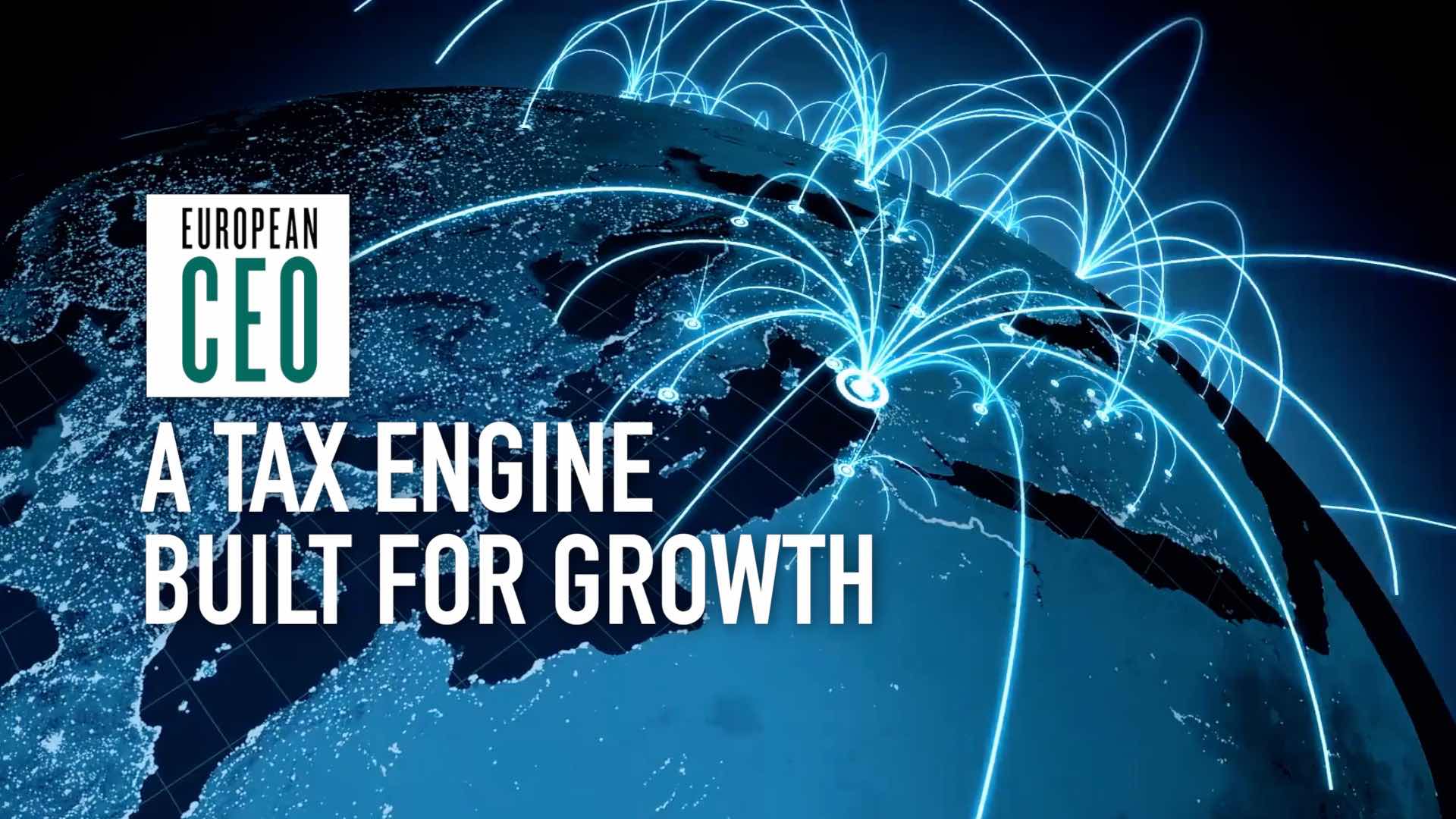Where have all the women gone? Martha Lane Fox on the tech startup scene | Video
European CEO talks to Baroness Martha Lane Fox about the lack of female entrepreneurs in the tech startup scene
Transcript
Despite being prolific users of online platforms, women are massively under-represented in the tech startup scene. One woman who made it to the top is Baroness Martha Lane Fox, co-founder of lastminute.com. She talks to European CEO about the scale of gender imbalance, the challenges female entrepreneurs face, and why a bit of girl power is good for the economy
Women are hugely under represented when it comes to tech startups, but being prolific users of online platforms, is this a missed opportunity in economic terms? I’m now with Baroness Martha Lane Fox, co-founder of lastminute.com, and Britain’s most famous e-commerce businesswoman.
European CEO: Well Martha, obviously women at the top is a huge subject at the moment, especially following the World Economic Forum, where the Coca Cola CEO said that women are already the most dynamic and fastest growing economic force in the world today. But how do you think women are viewed when it comes to entrepreneurship and startups?
Martha Lane Fox: It’s interesting isn’t it, because there are actually equal numbers of women entrepreneurs as men, it’s just that it tends to be a woman starting a business on their kitchen table, or doing something maybe when they’ve had children, and not perhaps scaling businesses to the degree and the extent that we’d love to see created out of the UK, let alone from women.
[T]here are actually equal numbers of women entrepreneurs as men
European CEO: Focusing more on tech companies now, and obviously there is an imbalance in terms of women founders and CEOs. A Reuters survey of the top ten venture backed startups showed that six do not have any women on the board, Pinterest for example, that 70 percent of their users are women, and not one woman on the board. So why would you say it’s important to correct this imbalance?
Martha Lane Fox: It’s a fact that more diverse boards perform better. The data is now there, and endless research from Stamford, from Harvard, from other business schools, looking at boards and companies and comparing share prices, dividends, and all of the financial measurements that you’d expect, and we now know that more diverse boards perform better. And interestingly, it’s not even the most achieving groups, so you can take all-male groups, all-female groups, both very high achieving, and you can have a group that is mixed, less high-achieving, and that group will be the best performing group. So there’s something that happens when you just represent society and represent equality, that means there’s better decision making that flows through the whole of the organisation.
Now the tech sector is a very very new sector, and it was a sector that came out of deep technology, people who were programming and coding, and for lots of reasons that are more obvious to explain that was mainly a sector created by men. So we’re partly going through this sort of cultural shift of the tech companies becoming bigger, growing up, reaching beyond their very deep technical roots to having maybe more marketing expertise represented on the board, more customer facing expertise, finance functions, operations, perhaps areas that weren’t so associated so deeply with men. And I think that culturally, there is still a phenomenon about boards that is more male culturally dominant. So I’m not for one minute suggesting that boards are overtly sexist, although some are, but there is a kind of latent culture that was created by men, where men feel more at home, where the decision making happens in a more male way, and that takes time to change and break through, it doesn’t happen with one board member, it starts happening when you’ve got three or four that are women.
[W]e now know that more diverse boards perform better
European CEO: Research from the World Bank has show how investments in women yields a double dividend: women are more likely to invest their incomes in families and communities, driving up GDP. So how can more of the world’s global economic and business leaders take advantage of this?
Martha Lane Fox: Any business leader, male or female, needs to look across their organisation and look at equality. It’s pretty simple: do you pay the same amount as men for the same roles, do you employ as many men as you employ women, do you employ as many board members through the whole organisation whether it’s an employee board or an executive board or a PLC board. Just look at your own house and keep it in order, putting some really robust and fabulous role models in your organisation, so making sure that board level is represented through to making sure that you’re flexible around women coming back to work having had children, making sure that if women are never reaching a particular executive layer, looking at why that might be, doing a proper deep analysis of some really quite unacceptable behaviour going on in a particular part of the organisation.
European CEO: Well you just slightly touched on this, but when you started out I heard that one of your investors asked you one question: what happens if you get pregnant? Obviously we cringe when we hear this kind of question, but is this a factor worth considering as, let’s face it, a small startup can’t really afford to pay maternity?
Martha Lane Fox: Of course, in a very small business, to have had five senior leaders who are all women all go off and get pregnant at the same time, that is a headache, and it’s not something that’s ideal. But at the same time, misrepresenting a founder’s belief and passion for wanting to start a business, who is a woman, as perhaps them wanting to take some time out at some time in the future, that’s completely unacceptable. If somebody’s coming to you and they want to start a business, they want to start a business. It’s not easy to become an entrepreneur and we should support women to do that, and then they will work out for themselves the best way of making that business grow, we should trust people. We’d never ask a man a similarly invasive question, and I also think that in macro global terms, it it’s a bit harder for companies because they have to pay a bit more maternity cover, I don’t care actually. As a citizen I think that’s really important, I think that we should be supporting women to have those choices, to take time out, just as we should be supporting men. So I kind of take a micro and a macro view of this, we have to be really careful to unpick the arguments and not be too prejudiced about small companies and their relative ability to deal with these things, I think it’s quite an individual thing.
It’s pretty simple: do you pay the same amount as men for the same roles, do you employ as many men as you employ women
European CEO: What are the greatest challenges, then, women entrepreneurs face?
Martha Lane Fox: When you are not the norm, you have to battle to be accepted as the norm, and so we know it’s harder to get funding as a woman. And again, I don’t really believe that’s because there’s this overt sexism anywhere, it’s just a cultural thing. If you work in a venture capital fund where there aren’t any women in that fund, because we know the finance sector doesn’t have very many woman, you probably see a woman coming in and you maybe have some prejudices. Not everybody, but culturally that might be the case. It doesn’t make anybody a bad person, it’s just the cultural norms I guess. So there’s certainly a lot of issues around financing and you only have to look at the numbers to see that.
European CEO: Well in the United States, for example, only 27 percent of entrepreneurs are women according to Berkeley University. Why is this, why are women not taking the initiative and starting their own businesses?
Martha Lane Fox: I wish there was one answer and I could say “this is the answer!” There’s no one answer, it’s all about more role models, about more cultural change in finance, more cultural change in the corporate sector generally, there’s more woman needed in the boardroom, there’s more women needed at executive director level, we need more female voices in the media, we need more female voices being represented across the entire spectrum. But I think it’s shifting, and I don’t want to sound like a naysayer. While I absolutely recognise that I’ve had the most incredible experience, all the opportunities in the world and got immensely lucky, so I know I come from a position of advantage, I do think that progress forwards not backwards, and it feels as though right now in 2014, we’re having more of a live discussion about what feminism means, why equality is important, and why these issues need to be talked about every single day. So I’m optimistic. Let’s have this discussion in 10 years time, and I think we’ll be in a better place.
European CEO: Martha, thank you.
Martha Lane Fox: Pleasure.


 Vertex tax technology: How Siemens sought (and found) a tax calculation engine built for growth
Vertex tax technology: How Siemens sought (and found) a tax calculation engine built for growth Vertex tax technology: Global tax determination at speed and scale
Vertex tax technology: Global tax determination at speed and scale Vertex tax technology: Data intelligence for tax
Vertex tax technology: Data intelligence for tax